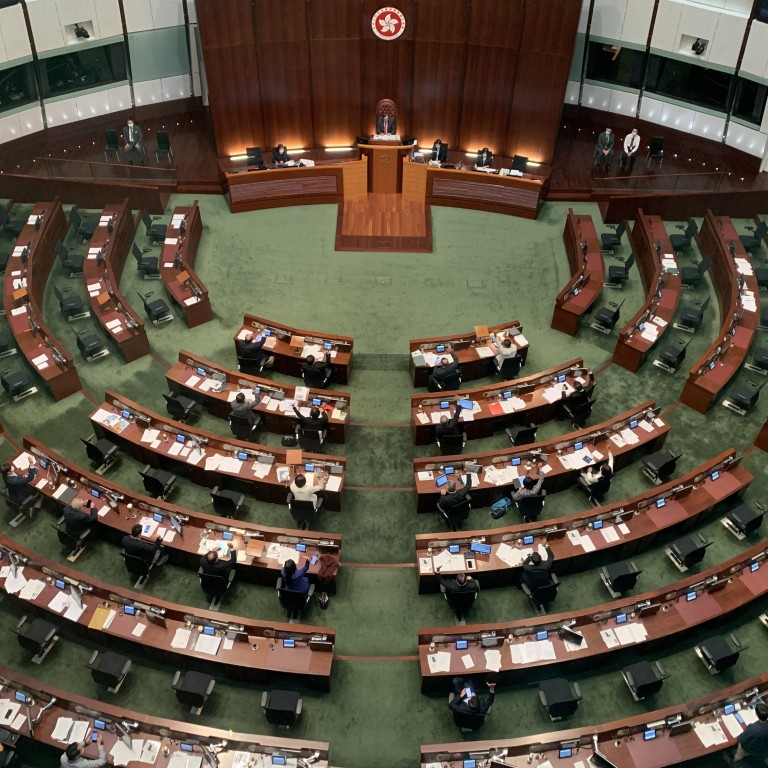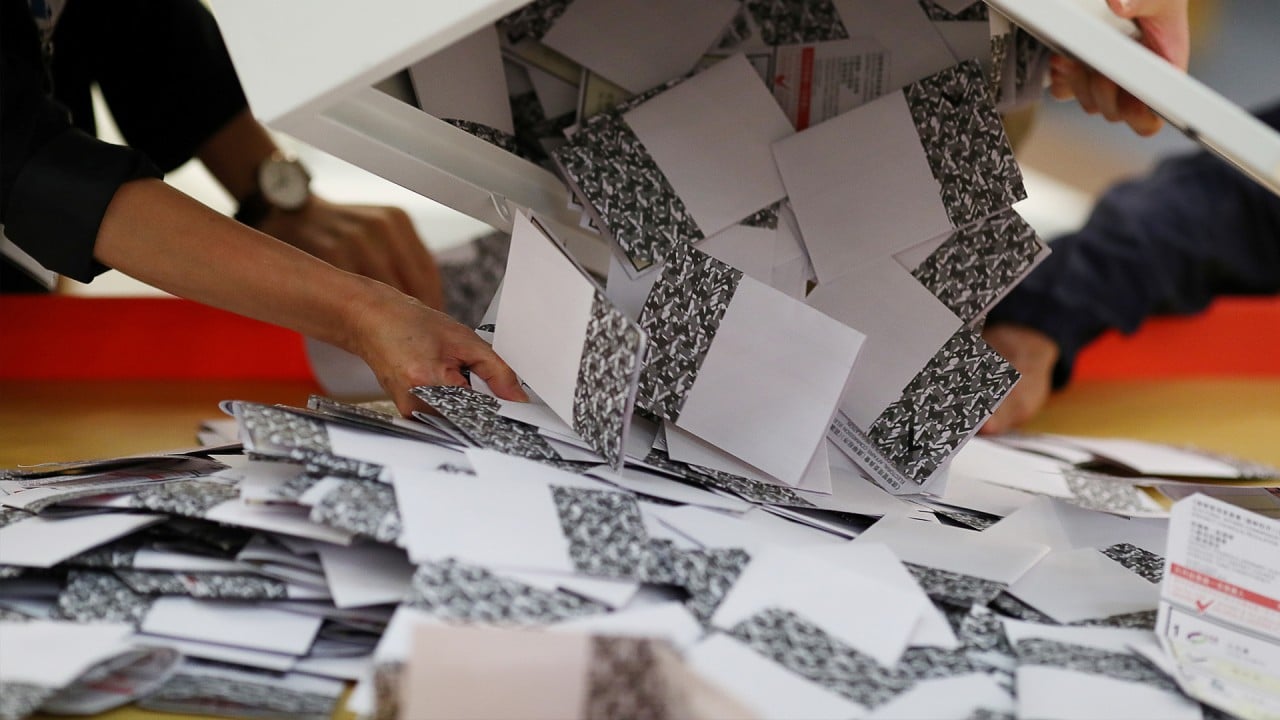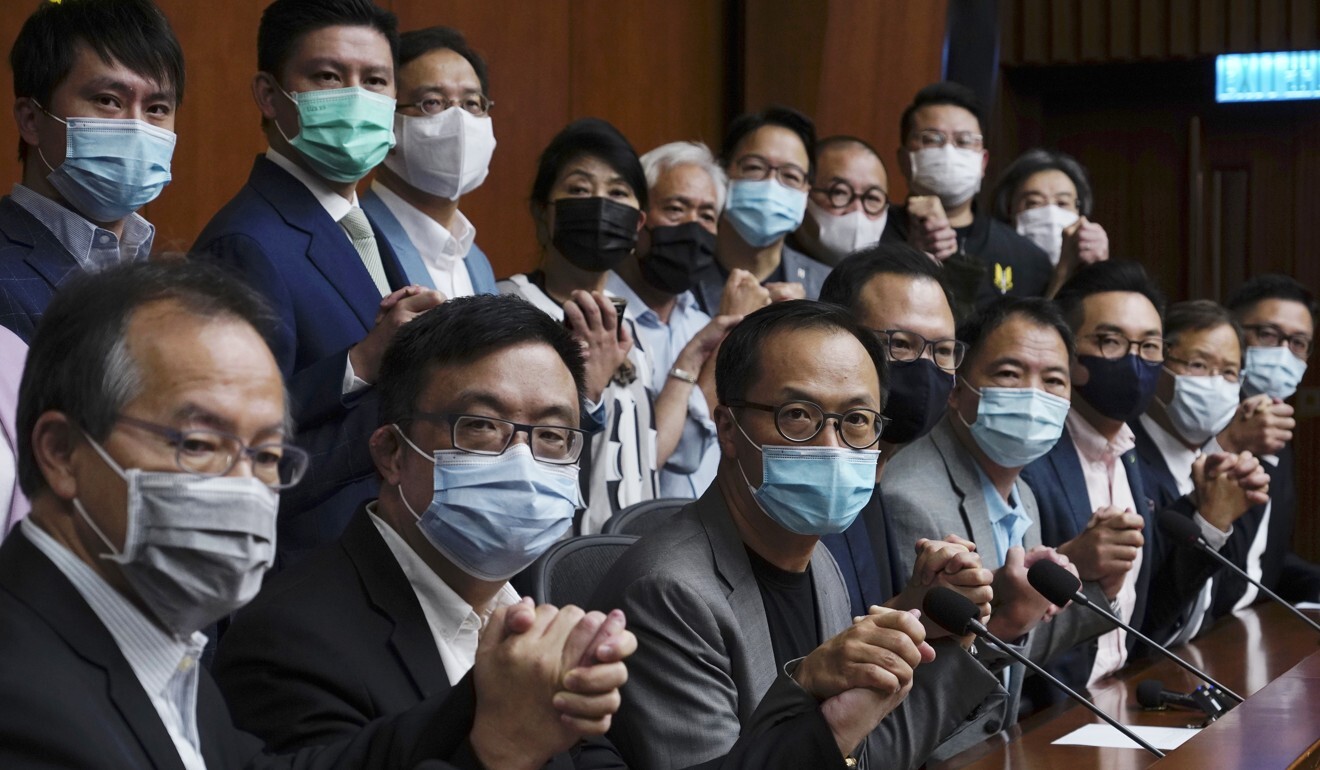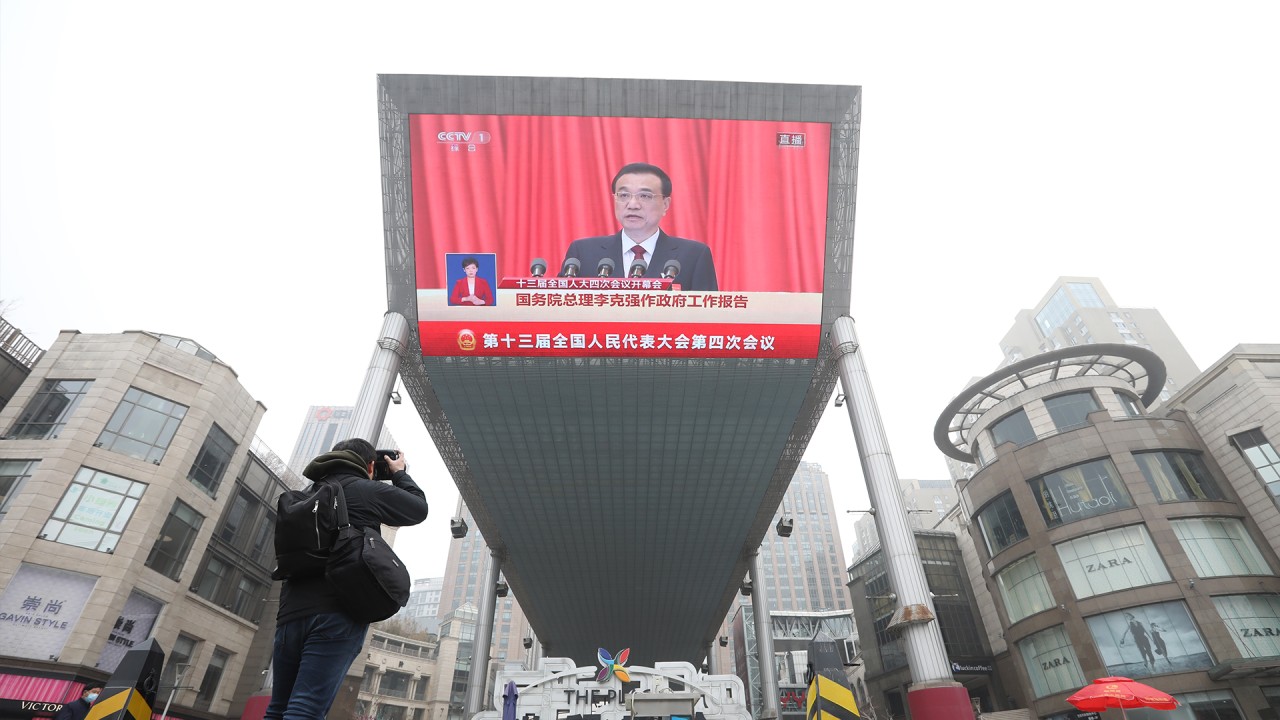
Hong Kong elections reform: a patriots-only game or circuit-breaker against radicalisation? The effect of Beijing’s plans on city’s opposing camps
- To some, the drastic changes highlight that Beijing loyalists now have the most important roles in local politics
- While others say that decades of striving to improve democracy in Hong Kong has come to nothing
But some local scholars expressed frustration that decades of striving to improve democracy in the city had come to nought. A former opposition lawmaker said it was clear Beijing no longer welcomed the opposition bloc’s participation in the city’s public offices.
Details of the momentous changes first emerged on Thursday night, after Xia Baolong, director of the State Council’s Hong Kong and Macau Affairs Office, met Hong Kong delegates to the National People’s Congress at a closed-door meeting.

06:05
Two sessions: China’s parliament plans an overhaul of Hong Kong’s electoral system
Lau Siu-kai, vice-president of the semi-official Chinese Association of Hong Kong and Macau Studies, said Election Committee members were now the “most reliable patriots” Beijing would rely on to carry out reforms to choose the city’s leader and lawmakers.
“They are now involved in every part of the two elections, and could serve as a very strong backbone to eliminate opposition to Beijing,” he said.
A look at Hong Kong elections and political reforms over two decades
He believed that after the overhaul, those willing to be a loyal opposition could still hold a limited number of seats in Legco, but they would never aspire to have influence, let alone aim to be a political force to be reckoned with again.
Beijing’s plans also include a shake-up of Legco, which will expand from 70 to 90 seats. Thirty or more seats would go to Election Committee members, while the number from geographical constituencies – where the opposition usually performed well – will be reduced.
To those surprised by the wide powers proposed for the Election Committee, pro-establishment lawmaker Priscilla Leung Mei-fun said it showed Beijing no longer wished to waste time on uncertainties.
“Unlike past reforms, Beijing’s focus this time is to eliminate opposition forces and plug loopholes,” she said. “In future, there will be no difficulty for the pro-establishment camp to get through nominations for Legco, but [destructive forces in the] opposition camp might have no place in this game.”

Leung added that Beijing did listen to reform ideas this time, such as her suggestion to set up a vetting committee to assess those wishing to run for the Election Committee or Legco, and review electoral officers’ decisions.
The Hong Kong government initiated three rounds of political reform since the city returned to Chinese rule in 1997, succeeding only once.
Over the decades, the Election Committee grew from 400 members to 1,200 in 2010, with the opposition occupying around 300 seats. In the first two Legco terms after the handover, the committee also picked a handful of lawmakers.
The number of seats in Legco also went up from 60 to 70 seats in 2010.
Former minister Anthony Cheung Bing-leung said Beijing was intent on installing a zero-risk electoral system after the opposition gained seats in Legco and swept the 2019 district council elections.
With the central government’s overwhelming influence over the Election Committee, he said Beijing could “minimise uncertainty in the chief executive election”.
Reveal of Beijing’s political inoculation plan for Hong Kong looms at ‘two sessions’
Without the change, there would have been every risk that Beijing’s preferred candidate would have found a two- or three-man race a tough one with the opposition in a position of influence, if not as kingmakers. The pro-Beijing camp would also risk fragmentation in having to make such a choice.
Cheung noted that Beijing’s plan was reminiscent of the “electoral college” concept it favoured when the Basic Law was being drafted between 1985 and 1990. That model envisaged a college dominated by pro-establishment business and professional elites.
With Beijing now emphasising the principle of “patriots governing Hong Kong”, he added: “The revamped electoral system will prevent opposition politicians who fail the ‘patriots’ requirement from entering the political establishment.”
But he noted future chief executives might face more constraints when Beijing loyalists packed the Election Committee.
“Vested interests will have more say in future. Mainland officials may not have thought through the possible aftermath when they came up with a zero-risk electoral system,” he said.

Ray Yep Kin-man, a political scientist at City University, also had no doubt that Beijing was out to eliminate political risk in the city’s elections while preserving some democratic elements.
“No matter how Beijing defends the changes, the overhauled electoral system can hardly meet international standards of democratic elections,” he said.
Yep was a core member of the Alliance for Universal Suffrage, a coalition of moderate pan-democratic groups founded in January 2010.
In May 2010, he was one of seven members who discussed an electoral reform package for 2012 with Li Gang, then deputy director of Beijing’s liaison office in Hong Kong.
In a dramatic move, Beijing approved the Democratic Party’s “one man, two votes” proposal, under which candidates for five new “super seats” in Legco would be nominated by elected district councillors and voters would directly decide the winners.
It’s undeniable that opposition politicians intended to seize political power through elections
Now Beijing is set to scrap these “super seats” and reduce seats for both geographic and functional constituencies.
Yep said Beijing’s proposals proved the pan-democrats’ efforts to engage the central government had “completely failed”.
Former minister Cheung said Beijing still needed to address Hongkongers’ aspirations for greater democracy. Article 45 of the Basic Law spells out that “the ultimate aim is the selection of the chief executive by universal suffrage upon nomination by a broadly representative nominating committee”.
Cheung suggested that with its new Election Committee safeguards, Beijing should take steps to allow the election of the chief executive by universal suffrage in 2027.
“It could turn the revamped Election Committee into a nominating committee by 2027 to screen candidates before they are put to ‘one man, one vote’,” he said.

03:56
China’s 2021 National People’s Congress opens with Hong Kong’s electoral system on the agenda
But former opposition lawmaker Fernando Cheung Chiu-hung said Beijing’s reforms risked going against Article 45, which also mentioned a “gradual and orderly progress” towards universal suffrage.
“We are walking away from such a direction,” he said.
Condemning the reforms as a bid to silence all opposition voices, he said: “No one could have expected such changes. It’s going backwards and definitely no one will dare to voice real opinions in the future legislature.”
Constitutional and human rights law scholar Michael Davis, formerly with the University of Hong Kong, said the move would not align with the Basic Law’s promise of the ultimate aim of “universal suffrage” and “gradual and orderly progress” towards democracy.
“It would clearly represent a major step backward on that path,” he said, adding it was returning to the colonial model under British rule.
EU urges Beijing to tread carefully on Hong Kong electoral reform
The changes also fail to comply with the requirement of free and fair elections under the International Covenant on Civil and Political Rights, to which Hong Kong is a binding party through the Bill of Rights.
“The ICCPR requires that the voters be given genuine choice,” Davis said. “This would not be possible under a model where candidates would be vetted for loyalty to the ruling party and the government now in place.”
Professor Jerome Cohen, director of New York University’s US-Asia Law Institute, said while Hong Kong may still have a governmental system called “one country, two systems”, its content had “dramatically changed”.
“The forms of government in Hong Kong will continue to be distinct from those on the mainland, but the substance will plainly be the same,” he added.
China’s ‘two sessions’ at a glance: Friday features Premier Li, GDP, Hong Kong
But Li Xiaobing, a Hong Kong specialist and law professor at Nankai University in Tianjin, suggested Beijing had little choice given the radicalisation of Hong Kong’s politics since the Occupy protests which paralysed parts of the city for 79 days in 2014.
The central government found it necessary to overhaul Hong Kong’s electoral system to reverse that trend, so the principle of one country, two systems could be preserved, he said.
“It’s undeniable that opposition politicians intended to seize political power through elections. The central government can’t sit idly in the face of the opposition’s attempts,” Li added.
While acknowledging some Hongkongers could be frustrated by Beijing’s plans, he said: “Some Hongkongers are too idealistic regarding democratic development. The central government must take into account Hong Kong’s overall interests.”
Additional reporting by Chris Lau
Editor’s note: The quote by lawmaker Priscilla Leung has been amended at her request


